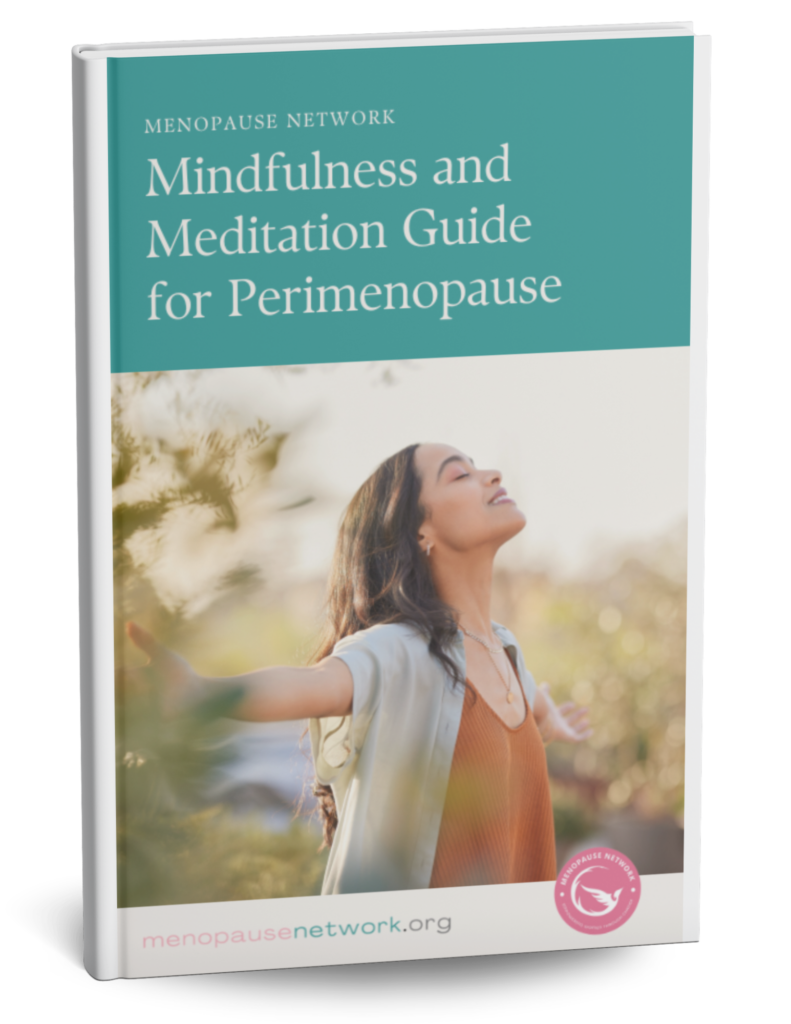Mindfulness vs. Mood Swings: How to Stay Sane During Perimenopause
One moment you’re laughing at a silly meme, the next you’re in tears over a missing sock. If this sounds familiar, you’re not losing your mind—you’re just in perimenopause! This transitional phase before menopause is infamous for its mood swings, leaving many women feeling frustrated, overwhelmed, and even out of control.
But here’s the good news: You don’t have to just endure these emotional ups and downs. Mindfulness—yes, that simple yet powerful practice of staying present—can be a game-changer when it comes to stabilizing your moods.
So, if you’re tired of feeling like your emotions are running the show, keep reading. We’re diving into how mindfulness can help you regain control, find emotional balance, and make perimenopause a little easier to handle.
Why Are Mood Swings So Intense During Perimenopause?
Before we get into solutions, let’s talk about the culprit: hormones.
During perimenopause, estrogen and progesterone levels fluctuate wildly. These hormones don’t just regulate your reproductive system—they also have a direct impact on your brain chemistry. Specifically:
- Estrogen boosts serotonin and dopamine, the “feel-good” neurotransmitters that help regulate mood. When estrogen drops, so do these happy chemicals, making you more prone to anxiety, sadness, and irritability.
- Progesterone has a calming effect on the nervous system. But when levels drop, it can lead to increased stress, sleep disturbances, and even mood disorders.
And it’s not just about hormones. Life stressors—like aging parents, demanding jobs, and shifting relationships—can amplify the emotional turbulence.
The result? One minute, you’re cool and collected; the next, you’re snapping at your partner for breathing too loudly.
How Mindfulness Can Help Regulate Mood Swings
Mindfulness isn’t just a trendy buzzword; it’s a scientifically backed tool that can help you stay emotionally balanced—even when your hormones have other plans.
1. It Helps You Respond, Not React
One of the biggest challenges with mood swings is feeling out of control. Mindfulness teaches you to pause before reacting, giving you space to respond thoughtfully instead of snapping in the heat of the moment.
A study published in Psychoneuroendocrinology found that mindfulness can help reduce emotional reactivity by promoting self-awareness and emotional regulation. In other words, it helps you stay in the driver’s seat when emotions start to surge.
Try This:
Next time you feel a mood swing coming on, take a deep breath and silently say: This is just a moment. It will pass. This simple practice creates a mental pause, helping you respond calmly instead of reacting impulsively.
2. It Lowers Stress Hormones
When you’re stressed, your body releases cortisol—the notorious “stress hormone.” High cortisol levels can make mood swings even worse, leading to increased anxiety, irritability, and even depression.
Mindfulness meditation has been shown to lower cortisol levels, helping you feel more relaxed and less emotionally volatile.
Try This:
Practice belly breathing for five minutes daily:
- Place one hand on your belly and the other on your chest.
- Inhale deeply through your nose, allowing your belly to expand.
- Exhale slowly through your mouth.
- Focus on the sensation of your breath moving in and out.
This simple exercise helps activate your body’s relaxation response, reducing stress and stabilizing your mood.
3. It Reduces Anxiety and Depression
Many women in perimenopause struggle with anxiety and depression due to hormonal shifts. The good news? Mindfulness has been shown to be just as effective as antidepressants for some people.
A study in JAMA Psychiatry found that Mindfulness-Based Cognitive Therapy (MBCT) can significantly reduce symptoms of anxiety and depression by training the brain to focus on the present rather than ruminating on negative thoughts.
Try This:
Start a gratitude journal. Every night, write down three things you’re grateful for. This simple practice rewires your brain to focus on the positive, reducing anxiety and boosting overall mood.
4. It Improves Sleep (and Better Sleep = Better Mood!)
Perimenopause often brings sleep disturbances—whether it’s night sweats, insomnia, or waking up at 3 a.m. for no reason at all. Poor sleep can worsen mood swings, making you more irritable and emotionally vulnerable.
Mindfulness meditation has been shown to improve sleep by calming the nervous system and reducing nighttime restlessness.
Try This:
Try a body scan meditation before bed:
- Lie down in a comfortable position.
- Close your eyes and focus on your toes.
- Slowly move your attention up through your body—feet, legs, abdomen, arms—releasing tension as you go.
- If your mind wanders, gently bring it back to your body.
This practice helps quiet racing thoughts and prepare your body for deep, restorative sleep.
5. It Helps You Accept (and Even Embrace) Change
Let’s be honest—perimenopause can feel like an identity crisis. Your body is changing, your emotions are unpredictable, and you may feel like you’re losing control. Mindfulness teaches acceptance—the ability to acknowledge what’s happening without resistance or self-judgment.
When you stop fighting against the changes, you free up mental energy to navigate this phase with more ease and confidence.
Try This:
Practice self-compassion. The next time you feel frustrated with your body or emotions, place your hand on your heart and say:
“I am going through a transition. It’s okay to feel this way. I am strong, and I will get through this.”
Self-compassion can help shift your mindset from frustration to self-love.
Making Mindfulness a Daily Habit
So, how can you incorporate mindfulness into your daily routine? Start small!
- Morning Check-In: Before getting out of bed, take a few deep breaths and set an intention for the day.
- Mindful Eating: Slow down and truly taste your food instead of eating on autopilot.
- Breathing Breaks: Set a timer to take a one-minute deep-breathing break every few hours.
- Evening Reflection: Before bed, take a moment to reflect on something positive from your day.
The more you practice, the easier it becomes—and soon, mindfulness will be second nature.

Find Your Calm
The Ultimate Mindfulness & Meditation Guide for Navigating Perimenopause
Discover How to Embrace Inner Peace and Balance Through Your Perimenopause Journey with Our Expert-Designed Guide—Absolutely Free
Final Thoughts
Perimenopausal mood swings can be tough, but they don’t have to control your life. By incorporating mindfulness into your daily routine, you can gain emotional stability, reduce stress, and navigate this transition with more ease and grace.
So take a deep breath, embrace the moment, and remember—you’re stronger than your hormones.
Want more menopause and wellness tips? Follow us for expert advice on thriving through every stage of life!












